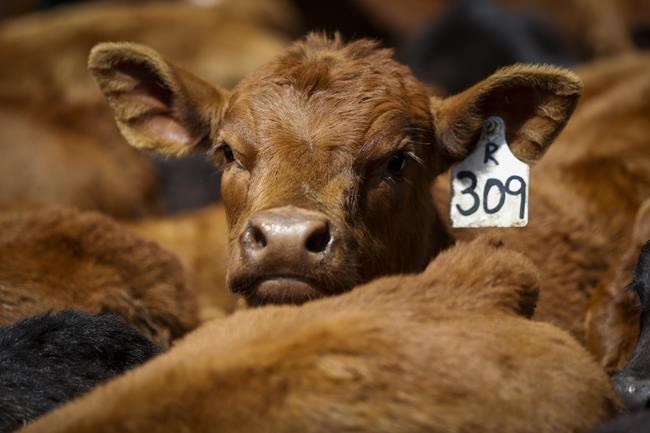CALGARY ŌĆö Lyndsey Smith, a third-year agribusiness student at Olds College in Alberta, was surprised when she heard that long-standing industry organization the Canadian Cattlemen's Association had changed its name.
But while Thursday's news was unexpected, Smith said the organization's new name, Canadian Cattle Association, is more reflective of her personal experience.
"I think it validates that women are an essential part of the ranch and farming," said Smith, who in addition to studying raises her own small herd of Hereford cattle and works as an agriculture research assistant.
Smith added that within her classes, more than half of the students are young women.
"I think it (the new name) really includes us more ... and it's great that we have so many women up and coming in the industry, who want to raise cattle."
The industry association that represents more than 60,000 ranchers and feedlot operators nationwide has had the word "Cattlemen's" in its name since its founding in 1932.
But while cattle ranching is still big business in Western sa╣·╝╩┤½├Į, particularly in Alberta where it is closely linked with the province's history and identity, the beef industry has struggled with its image in recent years as issues like climate change and animal welfare have gained traction with the public and governments.
Tyler Fulton, a CCA officer-at-large and president of the Manitoba Beef Producers, said Thursday's name change is the result of a three-year branding exercise, and also includes a newly unveiled logo.
He said while board members considered several options for both a name and logo, there was ŌĆ£unanimity around making the name more inclusive.ŌĆØ┬Ā
He added that beyond the issue of gender, "Cattle Association" will hopefully also resonate better with feedmill owners, veterinarians and other individuals who play a crucial role in the Canadian beef industry but aren't necessarily ranchers.
ŌĆ£I feel super proud of the culture thatŌĆÖs within our organization, and I think this update to the name and the logo more closely reflects what we already were ŌĆö a progressive, modern and inclusive organization that really champions women," he said.
Among the goals of the new name and logo is to help position the Canadian beef industry as "dynamic, forward-thinking," and "climate positive," Fulton said. On the environmental side, the industry is working hard to raise awareness of the positive things ranchers do, such as sequestering carbon by preserving native grasslands in pastures.
Sheila Hillmer, who ranches with her family just south of Lethbridge and sits on the CCA board, said the beef industry is no different than any other industry or business right now, in that it is grappling with a rapidly changing world.
ŌĆ£WeŌĆÖre stepping in and leaning into the relevant issues now, and I think weŌĆÖll continue to see the evolution of the brand and the industry several times over as times change," she said.
ŌĆ£I really feel that women have been an essential part of the Canadian Ag industry, and the Canadian ranching industry, right since time began," Hillmer added. ŌĆ£I think itŌĆÖs the coolest thing that the industry wanted to make sure that the name represented an inclusive and diverse world.ŌĆØ
Last year, the Saskatchewan Cattlemen's Association entertained a resolution calling for that group to also rename itself to be more gender inclusive.┬Ā
At the time, SCA chief executive Ryder Lee said the gender discussion is one that wouldn't even have come up a few years ago.
"A lot of conversations are like the ones we have at kitchen tables across the province," Lee said in 2021. "There is some awareness that things are changing. There's some comfort with that, there's some discomfort with that."
While the SCA's board ultimately voted that resolution down, Lee said in an email the issue will likely be discussed again now that the national organization has adopted a name change.
This report by The Canadian Press was first published July 7, 2022.
Amanda Stephenson, The Canadian Press



